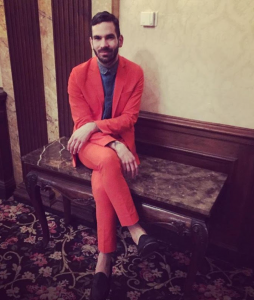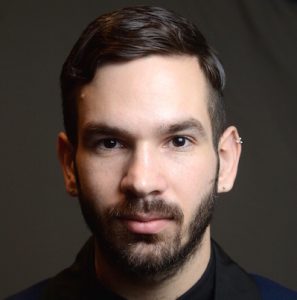This reflection was written by Nik Dragovic. Nik is currently a Research Library Fellow in the Digital Library Program at Emory University, and attended the Forum with support from a DLF Forum Fellowship for Students and New Professionals.
Although the 2016 DLF Forum was only my second, community consensus seems to be that it was an extraordinary year for reasons perhaps ancillary to our stated focus. I was able to attend thanks to the CLIR/DLF Students and New Professionals Fellowship. Despite having an introduction to DLF through the Vancouver conference, this return trip was unique in that I had the opportunity to present for the first time. It was also preceded by a year of interest group participation, making for an extended lead-up that left me excited to reunite with colleagues.
In addition to the overall quality of the program this year, I was struck by the coordination of sessions that helped me navigate the jam-packed days of the Forum. From a high level, the titling and curation of each section highlighted the different facets of digital library work that emphasize the varied skills sets and contributions of our community members. This wayfinding measure also helped me zero in on two of my primary interests: UX and Hydra.

The first UX session that I attended is one I’m particularly interested in highlighting, given the way it exemplifies the care with which DLF programming is curated. Here, presenters from a wide variety of institutions carried the common thread of UX through projects that ranged from accessibility to workflows to conceptual models, and described how their work progressed from concept through implementation and assessment. This tendency of program sessions to embrace the full scope of a broad topic while maintaining coherence is something I found to be evident throughout the Forum.

However, my greatest enjoyment this year came from contribution and collaboration. The second UX session was the one for which I was slated to present. Not only did did I gain a new round of insights on the topic, I was able to do so with the enhanced collegiality of co-presenting. Indeed, in the short space of a year, DLF not only helped onboard me to the new world of digital libraries, but presented multiple means for me to contribute to the community. Having participated in the Assessment Interest Group’s Analytics and User Studies subgroups, it was gratifying to discuss our progress, chart out potential work for the next year, and draw in new participants.

Even more than last year, I returned to my institution with a broadened perspective and a renewed sense of purpose for the ambitious projects we’ll be coordinating locally and across open-source and professional communities. Concerned as we are with matters digital, I find it remarkable that DLF consistently leverages the full potential of our face-to-face annual meeting. I reiterate my thanks to CLIR and DLF, and hope to join again next year in Pittsburgh.

